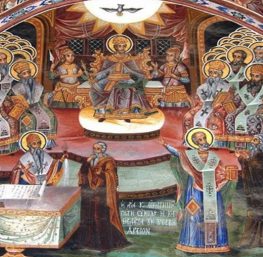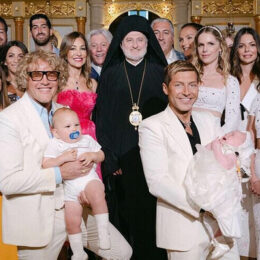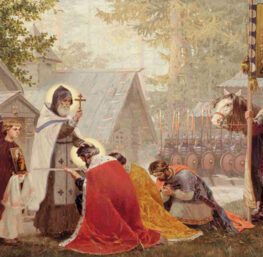Catholic Online | Aug. 10, 2009
Recalling some saints whose memory is celebrated in the weeks to come, Benedict XVI affirmed that they are witness to a “Christian humanism” that differs deeply from an “atheistic humanism”.
The Saints – the pope cited in particular the martyrs Maximilian Kolbe and Edith Stein – are indeed witnesses of “an antithesis which spans history, but at the end of the second millennium, with the contemporary nihilism, we have come to a crucial point, as major writers and thinkers have perceived, and as events have amply demonstrated. ”
Edith Stein – explained the pope – was “born in the Jewish faith and was won over by Christ in adulthood, she became a Carmelite nun and sealed her life with martyrdom”, St. Maximilian Kolbe, is a “son of Poland and St. Francis of Assisi, a great apostle of Mary Immaculate”. Both are martyrs killed in Auschwitz.
“The Nazi concentration camp – he added – as every death camp, can be considered an extreme symbol of evil, of the hell that comes to earth when man forgets God, and when He is replaced, usurping from Him the right to decide what is good and what is evil, to give life and or to take life. Unfortunately, this phenomenon is not confined to the death camp. It is rather the culmination of an extensive and widespread reality of often nebulous boundaries. ”
This reality is precisely the antithesis that became clear at the end of the second millennium, “the opposition between atheistic humanism and Christian humanism, between holiness and nihilism”.
“On the one hand – continued the pope – there are philosophies and ideologies, but also on an increasing scale ways of thinking and acting, which extol the freedom of man as the only principle, as an alternative to God, and thus transform man into a god, whose system behaviour is of an arbitrary nature. On the other hand, we note the saints, who, practicing the gospel of love, make reason of their hope, they show the true face of God who is Love, and at the same time, the true face of man, created in image and likeness of God. ”
. . . more



